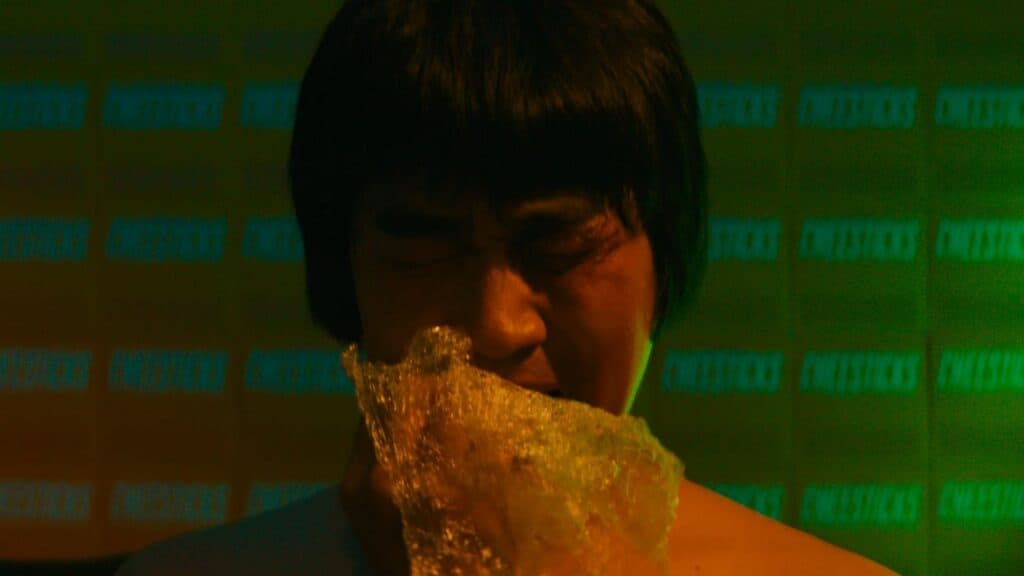Tomorrow is the opening day of the 28th edition of the Black Nights Festival in Tallinn, locally known as PÖFF. There are several striking features of this A-list festival. The most obvious is that it’s longer than most festivals. It’s 17 days instead of the customary ten. However, its virtues are not limited to duration and quantity but often to quality as well. There are six competition sections. The Official Selection, First Features, Baltic Competition, Rebels With a Cause, Critic’s Picks, and the new UUS! Doc@PÖFF Competition This year’s lineup contains several World and International premieres from all over the world. That is without mentioning the side programs with special screenings and TV beats, to name a few parts.
The official selection includes 18 works, 11 of which are world premieres. Contrary to last year, no big names are included. Gust Van den Berghe was one of them, but this year, he will come to Tallinn solely for jury duty. Intriguing-sounding titles include Pink Lady by Nir Bergman, the co-writer of BeTipul. The story is set in an ultra-Orthodox Judaist community and revolves around blackmail. Teemu Nikki presents a Finnish comedy named 100 Litres of Gold about two sisters who brew an unfiltered beer named Sahti. If the comedic aspects are unfiltered as well, they remain to be seen. Out of Control is a French film by Anne Le Ny about a 15-year-old marriage put to the test.

In the Rebels With a Cause section, one can often find unexpected gems. This year, the section is comprised of eleven films. Two of them are from Argentina. A Sip of Hell is said to contain “absurd Lynchian hallucinations emerge, filled with faceless orgies and dirty torments”. One of the directors, Pilar Boyle, wrote the script and acts in the film. The other Argentinian film is I Can’t Have Sex, labelled as “the definitive fantasy documentary of a hypersexualised society.” From Latvia comes Tesa Man by Uģis Olte. It has been described as the “Post-metal squall of Tesa (a band), set to the slow-motion rhythm of a dying world.”
Soujiro Sanada’s sophomore feature, Okamoto, seems to play with themes in the yakuza world. It purportedly contains mesmerising cinematography. The film Yellow brings fantastic news. Finally, someone made a film about Vincent van Gogh. The two brave people who dared to venture into this territory are Oliver Hirschbiegel and Albert Oehlen. The film depicts the artist’s problem of hiring models and his complicated relationship with those women. One of them is played by the outstanding Austrian actress Birgit Minichmayr.

The Critic’s Picks section boasts ten films this year. According to head programmer Nikolaj Nikitin, the selection concentrates on genre films this time around. That sounds less inviting than other sections, and it might not be the first section I head towards. However, among the films, one could mention I, the Song by Bhutanese filmmaker Dechen Roder, who made the highly intriguing Honeygiver Among the Dogs, which was screened at the Berlinale in 2017. Her new work is said to be a tale of Buddhist karma, doppelgangers and melancholic Dzongkha songs.
Dreaming of Lions by Paolo Marinou-Blanco is described as a surreal, brilliant comedy about euthanasia. The Italian, The Body by Vincenzo Alfieri is a thriller about a body that mysteriously disappears from the morgue after an accident.

The First Feature competition presents eleven films by new directors. A Yard of Jackals by Chilean director Diego Figueroa is a psychological thriller about a quiet man whose life is shattered by sinister neighbours. Signe Birkova’s Lotus is described by one programmer as “a dreamlike musical carousel, partly shot on an analogue camera from the 1920s.” No Dogs Allowed by German director Steve Bache is the story about fifteen-year-old Gabo, who has tendencies he knows to be wrong but cannot control. This promises to be one of the most harrowing films at the festival.
No Dogs Allowed and Yellow are also a part of this year’s focus, Germany. Eighteen films will be screened, among them Christoph Hochhäusler’s latest film, La mort viendra, which premiered at Locarno this year. The director, possibly most known for the masterful Unter Dir die Stadt (2010), will also head the official competition jury. I aim to interview him as I did with the 2022 jury president, Ildikó Enyedi.
There are two sections dedicated to films from other festivals this year. One is called Best of Festivals, and the other Screen International Critics’ Choice. There are things to debate among those selections. The fact that Conclave, The Brutalist, and, worst of all, The Room Next Door are selected is slightly surprising. On the other hand, the absence of Pepe, the greatest film in many years, together with a meagre output from Locarno (No Zürcher or Slim), is quite disappointing.
What else to do during PÖFF?
I hear what you are saying. How is it possible to spend your time at a festival that only screens several hundred films from all over the world? Well, PÖFF has you covered there as well. Apart from arranging several parties, some activities are quite specific for Black Nights and the area. First, there is the highly popular Winter Swim, which might be exotic for people not from the North. There is also the Bog hike, which I haven’t had the opportunity to try yet but might want to try this year when I go for a more extended period.
There will be reports and reviews throughout the festival and afterwards. Stay tuned for reports from the wolves.
